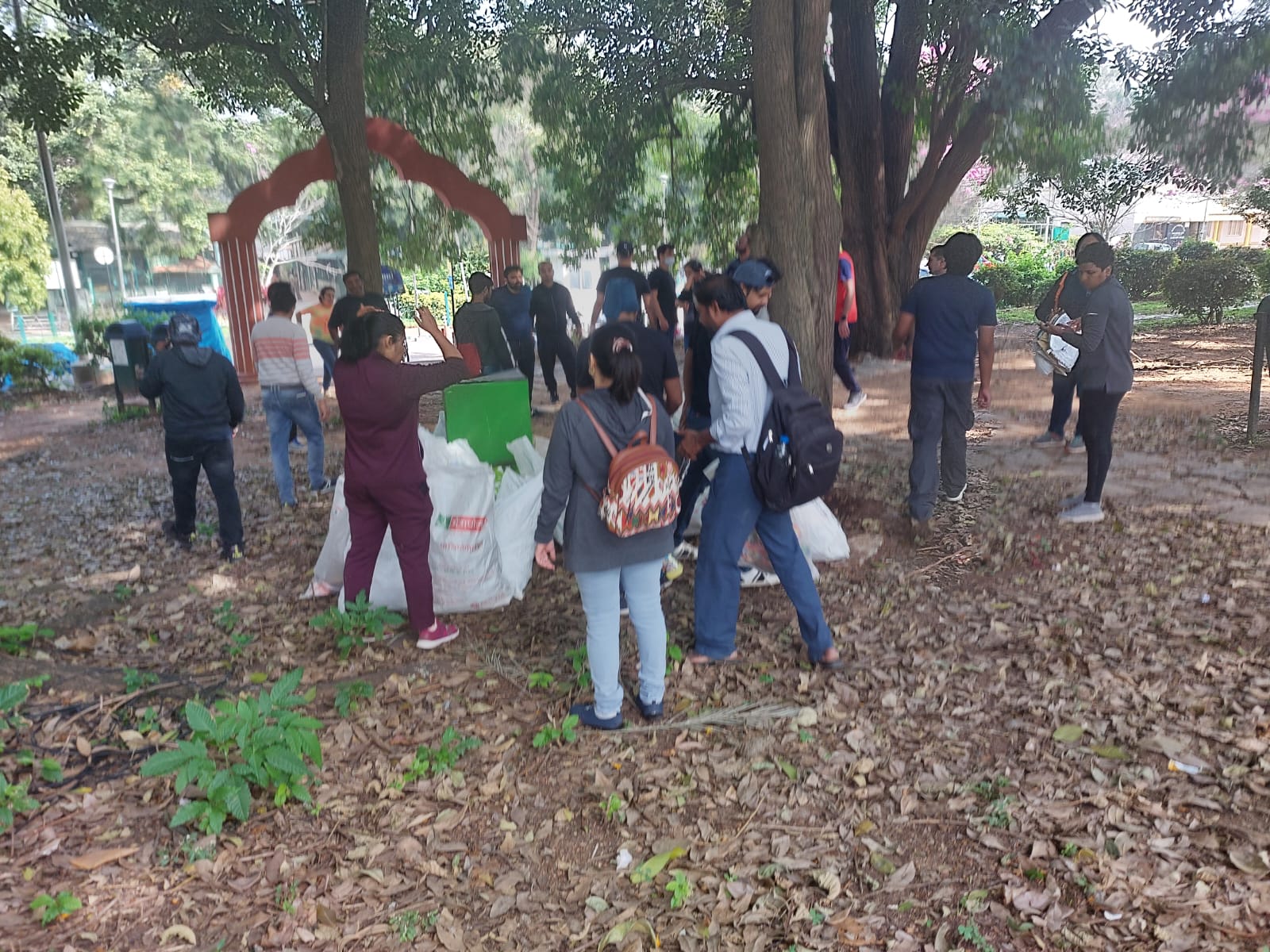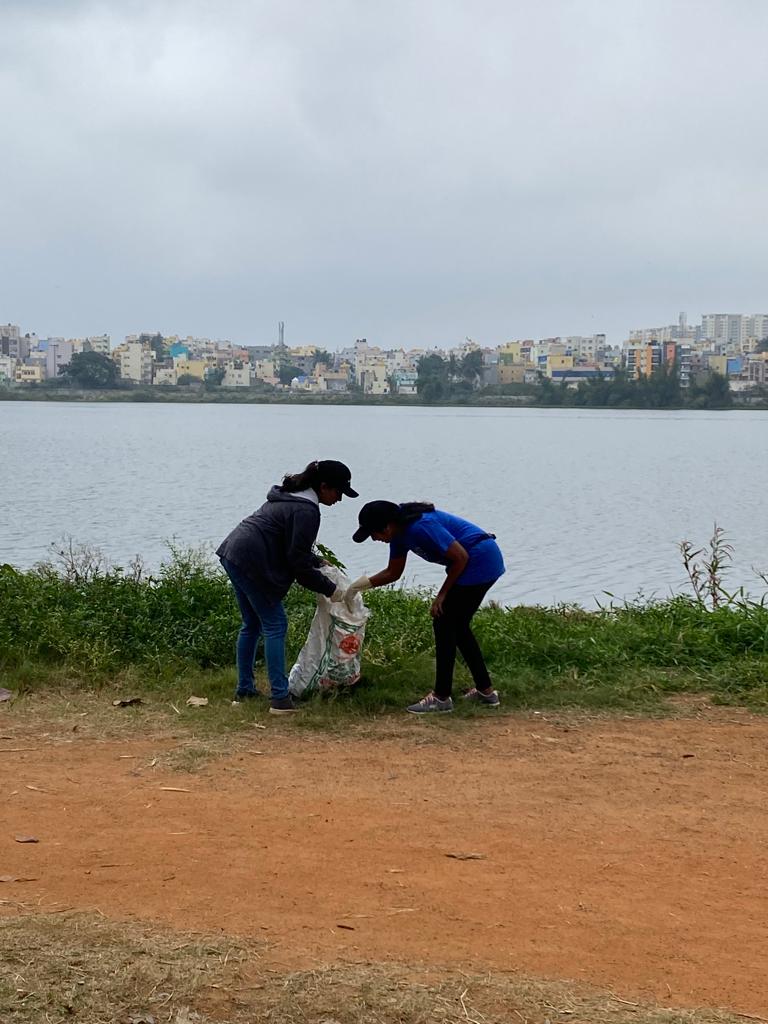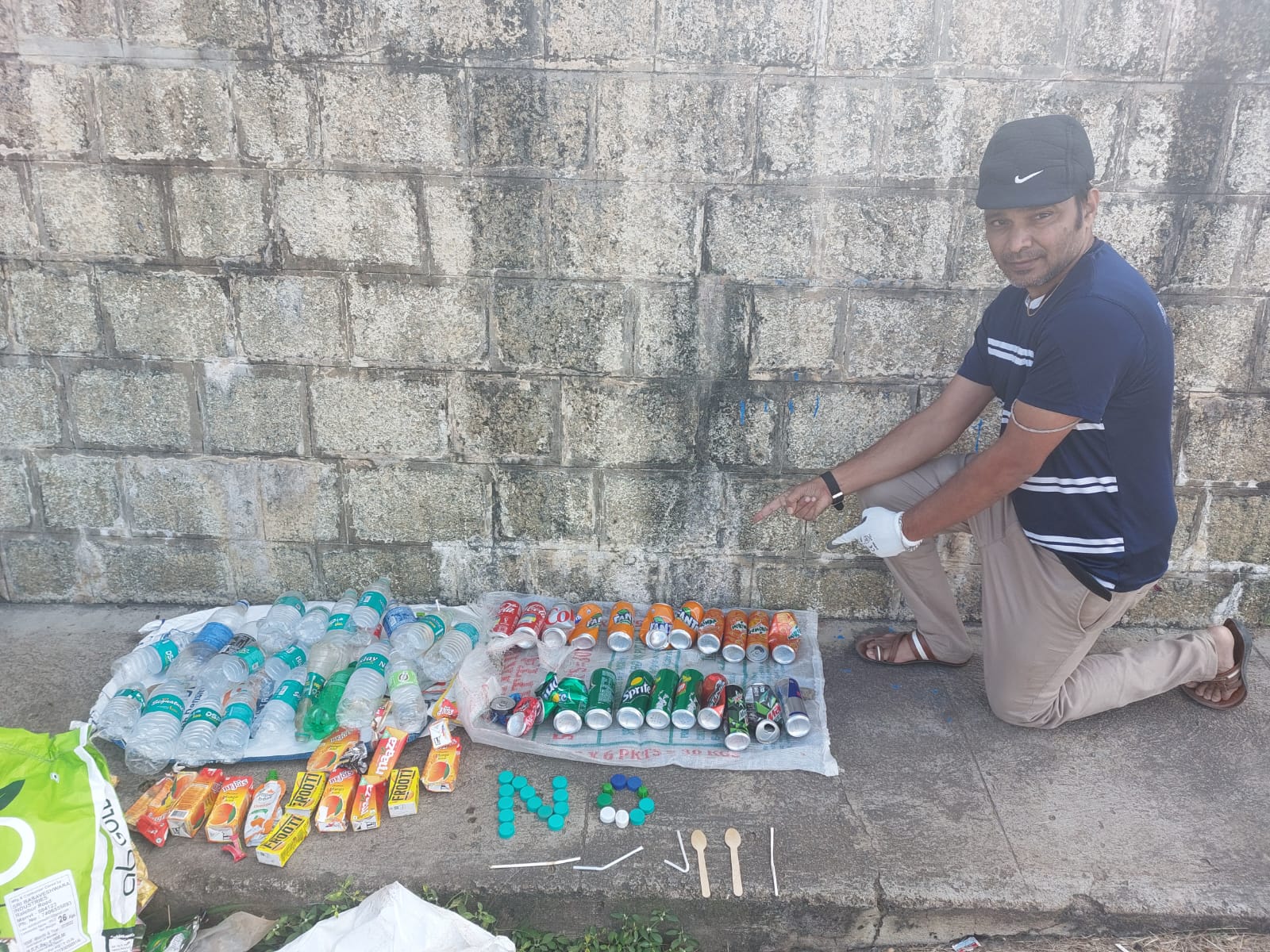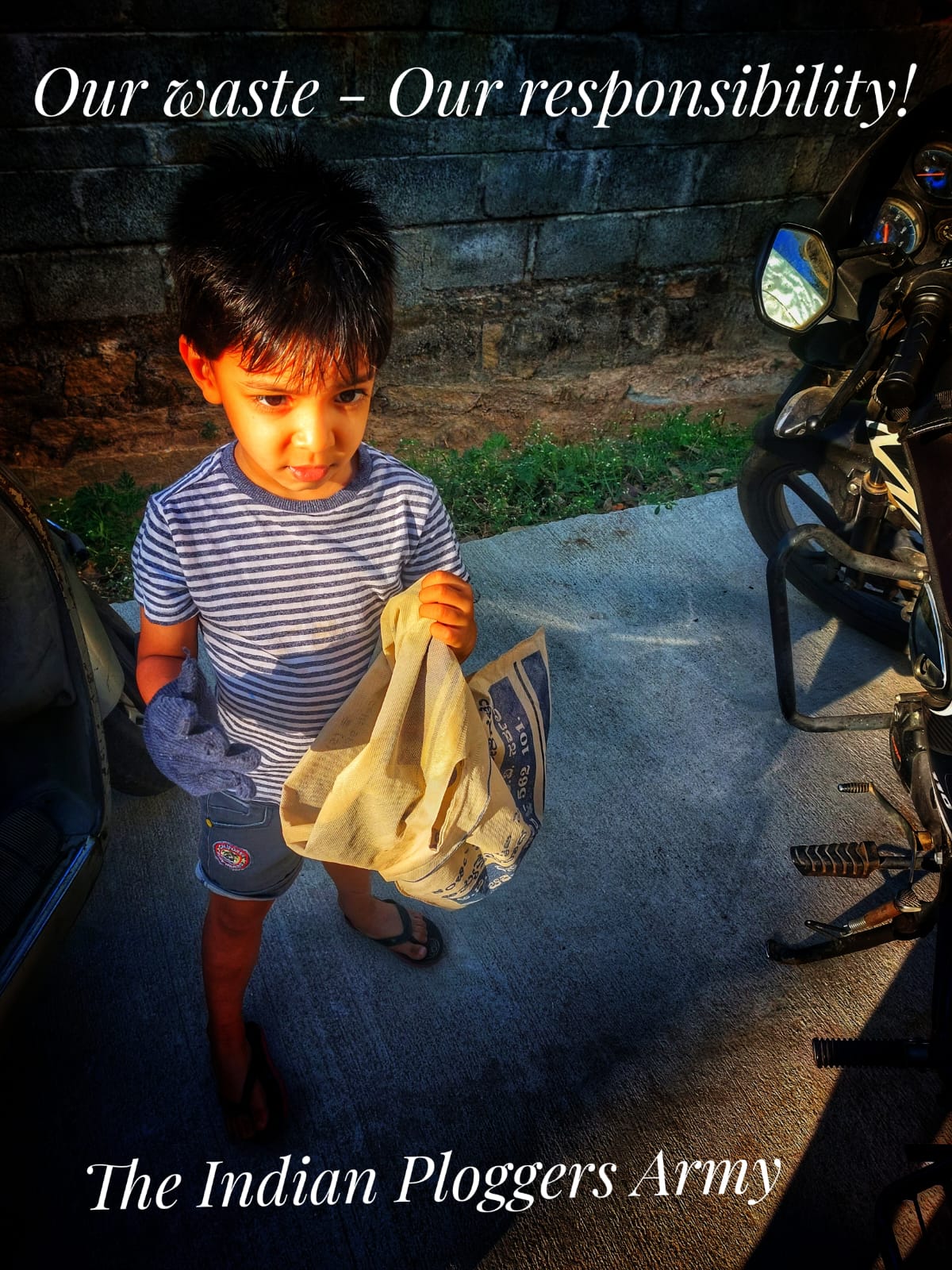This Army silently picks your litter
The next time you chuck trash on the roads or in the park, give a thought to the ‘Ploggers’
It started with one man going on his morning jog with his eight-year old daughter. Not able to tolerate trash that defiled his revered planet, G Nagaraj started picking them up to dispose in the trash cans.
A decade later, there is the Indian Ploggers’ Army with over 300 youth and adults who meet on weekends, and early morning on weekdays too, at designated places to collect the trash so carelessly thrown by others. The plastic bottles and covers, paper cups, etc collected average around 10 kgs in each ‘plog’. That would approximate to around 10,000 kgs of trash collected in four years! Perhaps, even more.
Today, Nagaraj is popularly known as Plogman, a term that refers to jogging and picking plastic and trash on the path. Pioneered by Swede Erik Ahlstrom in 2016 when he began clearing trash off the area he played in, ‘plogging’ went on to become a global phenomenon. Nagaraj, who works as regional manager for a MNC, began his plogging too, as a concept from that year.
He began choosing areas and time with maximum footfall, like Lalbagh and Cubbon Park. “This was intended so that maximum people watch the plogging and think before they discard trash carelessly,” he says.
Thanks to his dedication, the movement has spread from Bengaluru to some of the surrounding cities in the south.

Interestingly, our Plogman runs barefoot. “I believe it benefits to be in touch with the ground in terms of health. I also feel grounded and more in connect with the planet,” he says.
The trash collected during plogging is usually segregated and sent to the landfills or for recycling to units like Hasirudala. There have been attempts to use the plastic trash either stuffed into plastic bottles as eco-bricks in minor scale constructions, or mixed with tar when laying roads.
However, as Nagaraj notes, these are measures to use the plastic waste and not encourage use of more. “Ultimately, whether in form of bricks or road, the plastic is going to lie there for years and years. Hence, our first attempt has to be in ensuring we do not generate this amount of waste.”
Sometimes, the trash is so much that the jog becomes a walk and ‘plog’ turns into ‘plalk’! Armed with gloves and a sack, the plog army patiently bends, picks and collects the waste discarded by fellow citizens.
Nagaraj has also added a few other services to his activities. Encouraging people to give away used notebooks that have few pages left, collecting old shoes and clothes, effort is taken to see if the poor and disadvantaged can benefit. During the covid pandemic, he took upon himself to distribute sanitary cloth pads to the poor sections of society.


He also addresses corporates on impact of waste and on ways to reduce trash and is happy that quite a few of them have switched over from using plastic bottles and paper cups. The ones who are engaged with him in plogging are also converts who use plastic sparingly and do not litter. In the areas where plogging is frequent, a change has been noticed too.


Plogman Nagaraj believes that hefty fines alone will help control the trashing culture. “It is not about education because the people who throw stuff in public places are most often educated people. They know it’s bad to litter. They just do not care.”
It may be optimistic to believe that every person who sees the ploggers’ army at work will think twice before trashing stuff. But even if one person desists, it makes a difference.
Any change begins with one person. ‘One’ can create or destroy. The importance of ‘one’ is often lost on us. As Krishna says in the Gita, even if one person or creature in the world suffers, it has an impact on the others. That is what the Gaia theory also postulates — the whole earth is one organism with many parts. It has its way of ridding itself of trash too.
~ Jaya

